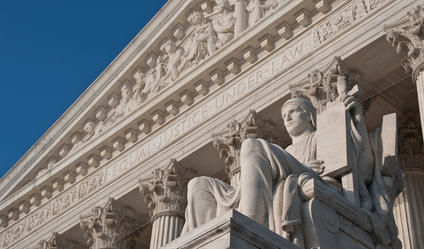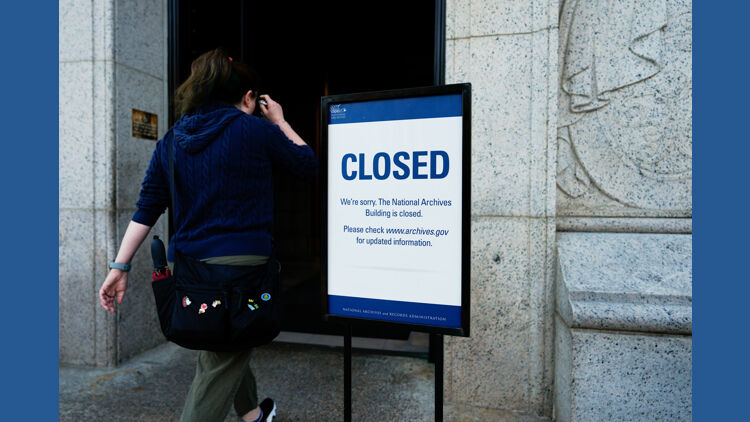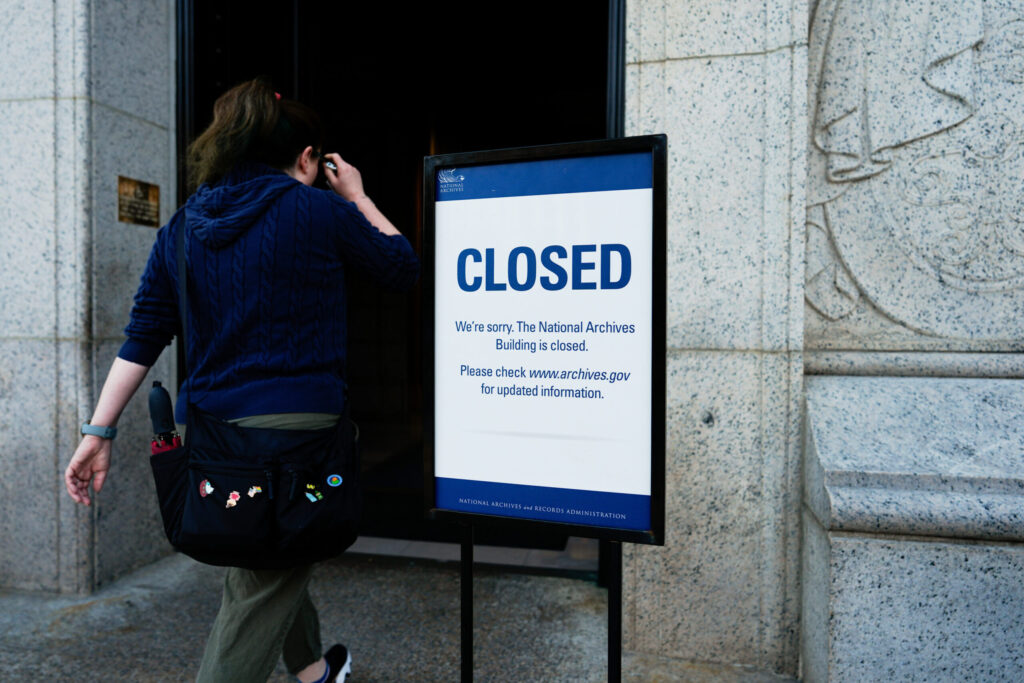Supreme Court sends TABOR challenge back to appeals court

The U.S. Supreme Court on Tuesday sent a lawsuit challenging the constitutionality of Colorado’s Taxpayer Bill of Rights back to an appeals court for review. The high court first granted a petition to hear the lawsuit, then vacated an earlier judgment handed down by the 10th Circuit Court of Appeals, and then remanded the case back for reconsideration in light of Monday’s ruling in an Arizona case that involved the power of state governments.
The lawsuit challenging TABOR, Kerr v. Hickenlooper, was originally filed in U.S. District Court in May 2011. State attorneys filed a motion to dismiss at that time, claiming the plaintiffs don’t have standing to file the lawsuit and that the case itself is a political question, which federal courts typically steer clear of.
The District Court denied the state’s motion to dismiss, a ruling which was then appealed to the 10th Circuit. The appeals court denied the request for a rehearing of the case, allowing the District Court ruling to stand.
State officials filed a petition for a writ of certiorari to the Supreme Court in October 2014. The Court reviewed the writ in conference in January, but delayed the release of its ruling until today.
In the Arizona case, Arizona State Legislature v. Arizona Independent Redistricting Commission, the court rejected the state legislature’s argument that the Constitution’s Elections Clause prohibits voters from transferring power over federal congressional redistricting to an independent commission.
The TABOR case, filed by a group of current and former elected officials, led by state Sen. Andy Kerr, D-Lakewood, (he was a state representative when the lawsuit was filed) argues that the amendment to the state constitution violates the Guarantee Clause of the U.S. Constitution as well as similar clauses in the Colorado Enabling Act, which allowed Colorado to become a state.
The Guarantee Clause says that each state will have a “Republican Form of Government.” The plaintiffs argue that, by removing the General Assembly’s power of taxation and giving that power entirely to the people through direct elections, TABOR removes a key element of representative government from the state, meaning Colorado no longer has a fully republican form of government.
The state argues that the people have retained legislative power in the state constitution through the initiative and referendum process and that TABOR is an extension of that right.
“We are grateful that the Supreme Court recognized the problems with the 10th Circuit’s ruling,” said Colorado Attorney General Cynthia H. Coffman. “As we’ve said all along, we believe this case to be without merit, and we look forward to once again defending TABOR. We will continue to defend our citizens’ right to have a voice in state tax policy.”
David Skaggs, an attorney for the group that filed the suit, said he believes the plaintiffs will be able to distinguish this case from the Arizona case.
“It’s a mixed bag,” he said of the decision, pointing out that the group would have preferred to see the petition for certiorari denied and the case sent back to U.S. District Court for arguments on the merits.
Skaggs said attorneys for the group will be analyzing the Arizona ruling, especially the dissenting opinions from Justices Antonin Scalia, Clarence Thomas and Samuel Alito.
The state’s petition also argues against the standing of the three legislators who filed the suit, who claim injury to the Legislature in the denial of the power of taxation.
An amicus brief filed by a group of Republican lawmakers directly opposes this argument, stating, “[T]he people retain ultimate veto authority over all acts of the General Assembly, including taxation and spending.”
“Like other bill of rights provisions of the state constitution, TABOR is designed to constrain the authority of the state government and thereby allow individuals to exercise greater control over their own lives,” reads the brief, which was filed jointly with the Colorado Union of Taxpayers. “Unlike other bill of rights provisions, TABOR does not prohibit the state government from exercising legislative authority or raising revenue.”
David Kopel, an attorney with the libertarian-leaning Independence Institute, who authored an amicus brief on the case supporting the state’s arguments, said the court’s decision on Tuesday is a victory for TABOR supporters.
“It was more than anybody on the pro-TABOR side expected at the beginning of this process,” he told The Colorado Statesman.
Kopel said he believes this decision shows the plaintiffs’ argument is wrong.
“I think there’s not much of a legal leg to stand on for the plaintiffs,” he said. “The logic of Arizona Redistricting as applied to Kerr v. Hickenlooper makes it difficult for the 10th Circuit to allow the case to go forward.”
A variety of groups filed briefs with the Supreme Court as well as the 10th Circuit in support of both sides of the argument.
The Colorado Chapter of the American Academy of Pediatrics and Colorado Nonprofit Association filed a joint amicus brief with the 10th Circuit in support of the suit.
They argued the case is capable of being decided at trial under the Enabling Act, regardless whether the court finds the Guarantee Clause claim justiciable or not.
The brief filed by the nonprofits asks, “Statutory interpretation of Colorado’s Enabling Act will resolve a core, as yet undetermined, question that is presented by this case: What was Congress’ intent concerning the manner in which the State of Colorado is entitled to govern itself?”
The lawsuit’s supporters also claim TABOR has limited the state’s ability to support nonprofit groups that serve basic human needs and that caps have “limited access to basic, needed medical care services to low-income children; restricted access to immunizations resulting in Colorado’s low childhood vaccine coverage rates; and contributed to rising rates of childhood hunger and obesity.”
The attorneys general of Texas, Idaho, Arizona, Indiana, Ohio and Wyoming submitted an amicus brief to the Supreme Court in support of Colorado’s defense against the lawsuit.
“At its core, the plaintiffs’ case challenges a longstanding method of governance (constitutional amendment via the ballot box) employed nationwide,” the brief filed by the attorneys general reads. “This lawsuit is especially offensive to the Guarantee Clause because it is a suit against a State seeking to overturn a vote by the people of Colorado.”
The group argues the TABOR lawsuit threatens to destabilize the initiative process in every state.
The Colorado Parent-Teacher Association disagrees in its brief, arguing the plaintiffs have only brought a narrow challenge to TABOR.
“Plaintiffs challenge TABOR — and TABOR alone — because its restrictions on the General Assembly’s power to raise and appropriate revenue fundamentally compromise and undermine the state’s Republican Form of Government,” the PTA’s brief reads. “TABOR is the only state constitutional provision that effectively gives voters exclusive power to raise taxes and increase governmental spending limits. TABOR also stands alone in its requirement for automatic taxpayer refunds for excess government revenue above the spending limits.”
A brief filed by a group of 20 organizations — including the National Federation Independent Business, Small Business Legal Center and the TABOR Foundation — argues the 10th Circuit broke new ground by allowing the case to move forward and opened the door “for ideologically motivated litigants to advance Guarantee Clause challenges throughout the nation.”
“This has major implications for entire bodies of state law,” the group argues. “The case presents an issue of exceedingly great importance for the citizens of all fifty states.”













